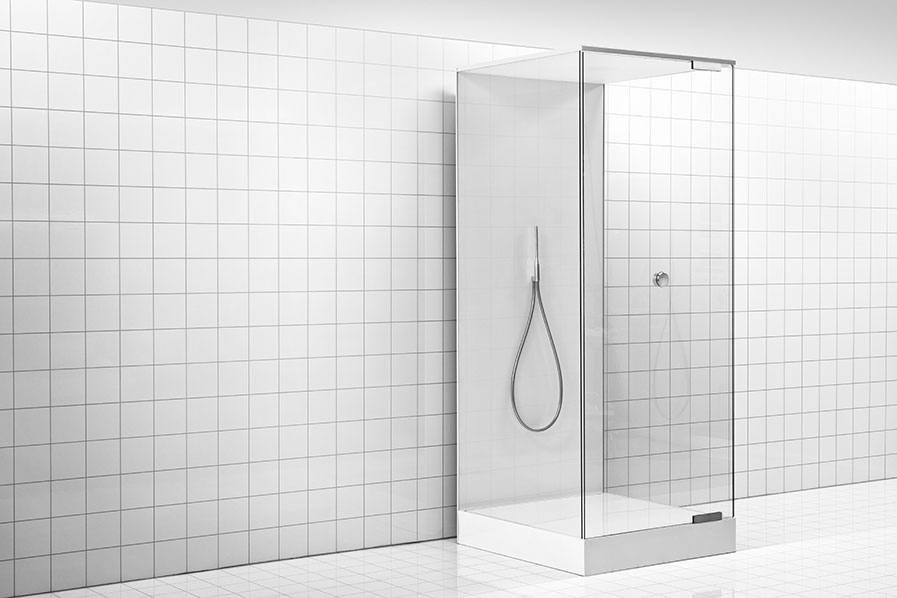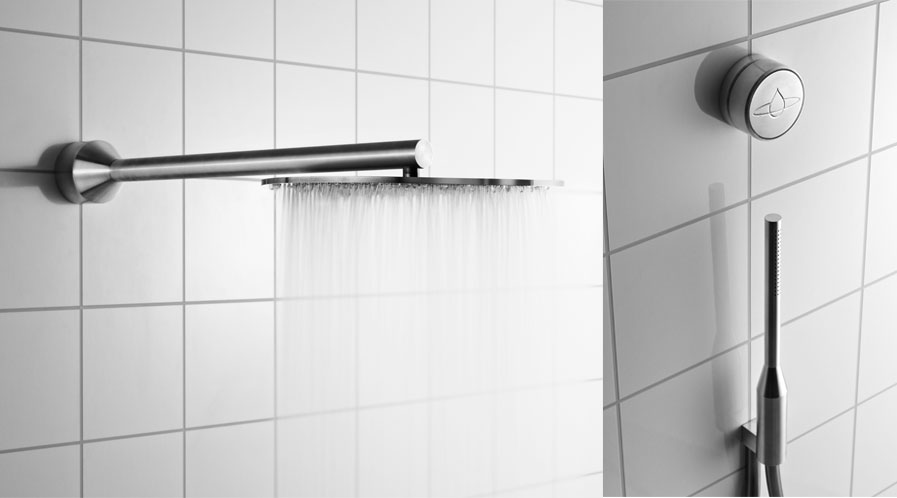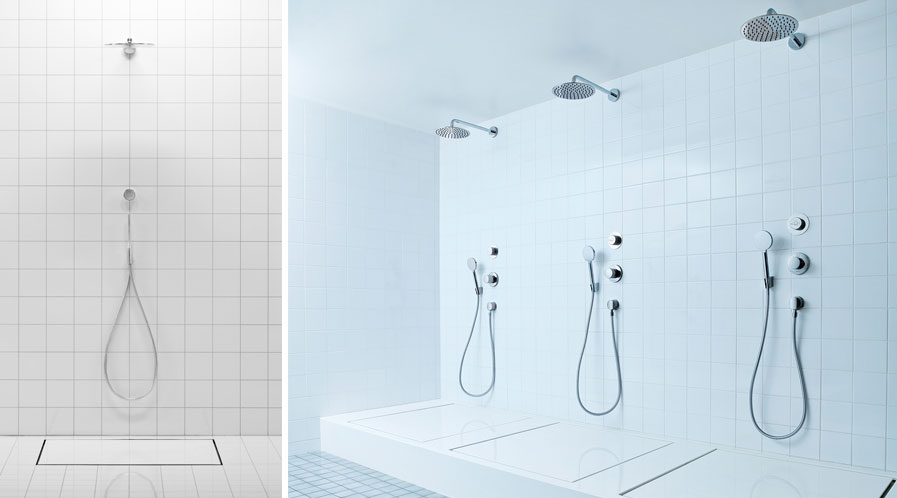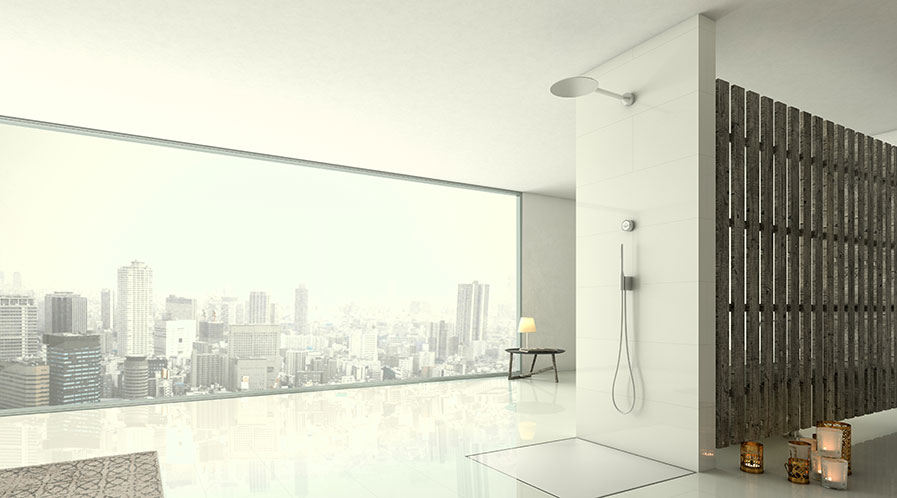Showering A Better Future
Water scarcity is the top most global risk. Washrooms in any building, private or public, are the biggest guzzlers of this precious resource. Consider this, a mere 10-minute shower at home or in a hotel by a guest leads to consumption of copious amounts of water. However, there is now a method that uses Space Certified Technology to purify and recycle water, which helps to reduce water and energy consumption.
Mehrdad Mahdjoubi, CEO and Founder of Sweden-based Orbital Systems, has created a shower that recycles its own water. The shower is deployed with the OrbSys system to filter particulate matter and microbes from drain water. The water is then diverted back to the system. During a collaboration with NASA during his stint at the Johnson Space Center in Houston, Mahdjoubi came up with this idea.

The technology ideated and developed by him reduces energy costs by 80% because the water retains its heat through the recycling process. A smartphone app delivers updates and helps to order capsules for the purification system. According to tests conducted by the Swedish Institute for Communicable Disease Control, the water is cleaner after being recycled by the OrbSys compared to tap water. However, the OrbSys costs nearly USD 5,000, including the integrated electric water heater. Besides, there is a requirement to change the purification capsules in the filtration system annually.
The target audience for Orbital Systems is hotels, health and sports club and health care facilities where a single shower is used by many people. Institutions can also more easily track water reduction while meeting their CSR goals.
The first OrbSys was installed at Ribersborgs Kallbadhus, a coastal bathing house in Malmö, Sweden. Each of the six showers installed there saves over 30,000 litres (8,000 gallons) of water and 1,600 kWh of electricity each month.

In Scandinavia, Nordic Choice Hotels, the largest hotel chain in the country and the Baltic, has deployed the technology at their Quality Hotel Skjærgården in Norway. The hotel chain is looking at reducing annual overall water consumption by 20% before 2020. The installation is the beginning of a larger goal across the hotels. According to Mahdjoubi, “This is our first major hotel installation in Norway. We see tremendous potential for our technology in the hospitality sector. We are proud to work with leading hotel chains in this highly accepting market for clean technology.”
Additionally, the Swedish Armed Forces has also adopted the Orbital Systems showers at their remote outposts. The similar adoption of this technology at Kargil in India can probably benefit the Indian army serving the most inhospitable terrain of the world.
Termed ‘Shower of the Future’, this technology from Orbital Systems can revolutionise water usage in hotels. In India, heavy users of water such as hospitality companies can consider this technology which works on-the-spot-recycling trend.

Mehrdad Mahdjoubi
CEO, Orbital Systems
Mahdjoubi began the development under the framework of a thesis at Lund University, where he was involved in a joint project with NASA. The project focused on inventing design concepts that can assist space expeditions, such as the space mission to Mars, and thus enabling the effective usage of precious resources, contributing for the successful completion of the mission.
Built with robust and durable materials, the Shower of the Future can withstand weight of up to 250 kgs. The frame is made of stainless steel and other key materials include plastics, aluminium and safety glass, while the shower cover is made of glass fiber. To ensure the water flow of application 15–22 ltr per minute, the system requires a minimum water pressure of 3 bar incoming and can support a maximum water pressure of 8 bar. The shower requires both hot and cold water connection. Although the Shower of the Future is equipped with a heater, it is designed only to maintain the temperature of the water to account for the temperature loss during the shower. This allows for taking a shower for a long time without using any more hot water.
Here water is filtered and cleaned by purification capsules at the base of the technology. As a result, the shower uses only 5 ltrs of water for recycling. Also, the system is equipped with patented sensors, examining the concentration of contaminants in the water before it reaches specially designed purification capsules.

If there is not much concentration of contamination particles in the water, it is purified by the capsules and then pumped back to the shower nozzle. However, if the water is highly contaminated, it is released and the same amount of new water enters the shower nozzle.
The Shower of the Future requires only 5 ltrs of water to initiate the recycling loop. However, depending on the level of water contamination, each shower session uses different amount of water.
The lifespan of the capsules are directly related to the quantity and quality of the incoming water. The more contamination in the water and the more number of showers taken per day, the shorter will be the lifespan of the purification capsules. The micro capsules have a life expectancy of between 10,000 and 30,000 ltrs of water and the nano capsules have a life expectancy of between 50,000 and 100,000 ltrs of water.
The actual water savings of the Orbital Systems depend on the amount saved. A conventional shower flushes all water to the drain, while the Shower of the Future recycles it, so the more times the water is recycled, the higher is the water savings ratio.
Based on the Swedish municipal water quality and on normal shower behaviour, the micro capsule is assumed to have a lifespan of 15,000 ltrs, while the nano capsule has a lifespan of 50,000 ltrs. This clearly shows how hotels, hostels and uniformed services can gain from adopting this technology and design.
Even after discounting the not as perfect water quality in Indian municipal water lines, the savings and benefits can be substantial.
Tags: Energy Efficient, Orbital Systems, Shower Systems, Smart Showers, Sustainability



